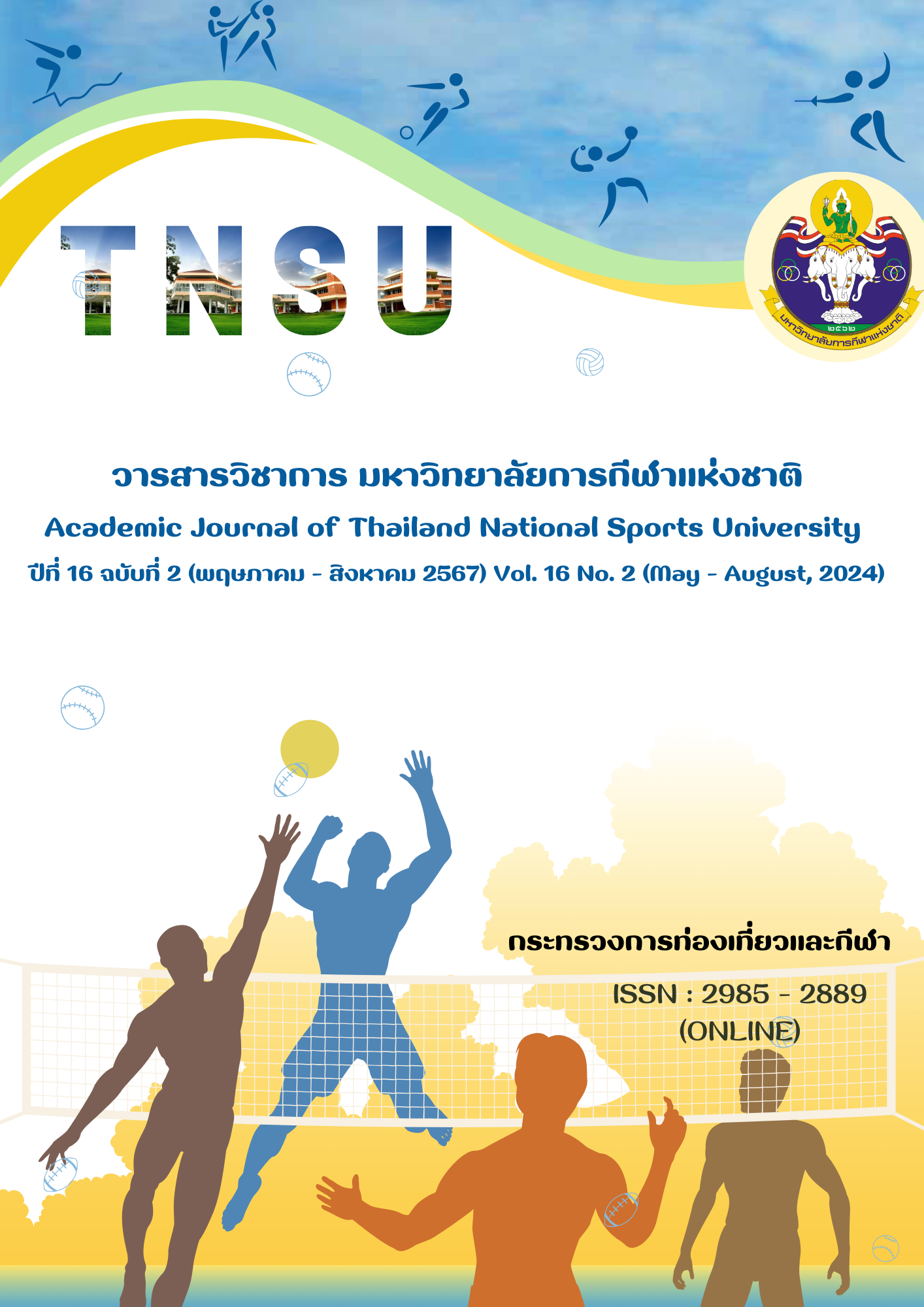EFFECTS OF COMPETENCY – BASED LEARNING ON HEALTH EDUCATION LEARNING USING CASE – BASED LEARNING ACHIEVEMENT AND MEDIA LITERACY OF SECONDARY SCHOOL STUDENTS
Main Article Content
Abstract
Purposes: To study the effects of competency – based learning on health education learning using case – based learning achievement and media literacy of secondary school students at Pakthongchaiprachaniramit school. Methods: The subjects were 70 students of ninth grade , divided equally into two groups: 35 of the experimental group was assigned to study under competency - based learning using case - based learning and 35 of the control group was assigned to study with the conventional teaching method. The research instruments were comprised of 8 health education lesson plans using competency - based learning using case - based learning and the data collection instruments included learning achievement in the area of knowledge, Attitude, Practice and media literacy. The duration of the experiment was 8 weeks. Data were analyzed by mean, standard deviation and t - test (Paired - Sample
t - test, Independent - Sample t - test). Results: The research finding was as follows: The mean scores of the learning achievement in the area of knowledge, attitude, practice and media literacy of the experimental group students after learning were significantly higher than that before learning at .05 level, and the mean scores of the learning achievement and media literacy of the experimental group students after learning were significantly higher than that of the control group students at .05 level. Conclusion: Health education learning management using competency-based learning and case - based learning management achievement and media literacy of ninth grade students were higher than health education learning management with the conventional teaching method.
Article Details

This work is licensed under a Creative Commons Attribution-NonCommercial-NoDerivatives 4.0 International License.
The published article is a copyright of the Academic Journal of Thailand National Sports University. The passage appeared in each article in this academic journal is a perspective of each author which is not related to the journal. Each author is required to be responsible for all components of his/her own article. If there are any mistakes, each author must be responsible for those mistakes on his/her own.
References
Child and Youth Media Institute. (2017). Framework: Media information and digital literacy. Retrieved from https://www.childmedia.net/archives/205
Dhanakorn Srisooksai. (2022). Media literacy: Promoting wisdom vaccine for society. Thai Media Fund Journal, 1(1), 1 - 21.
Independent Committee for Education Reform. (2019). Independent committee’s mission report for education reform. Retrieved from https://backoffice.onec.go.th/uploads/Book/1734-file.pdf
Jintana Sarayuthpitak. (2022). School health Programs. Chulalongkorn University printing house.
Thai Health Promotion Foundation. (2020). 5 Component of Media Literacy. Retrieved from https://www.thaihealth.or.th/Content/39558
The government gazette. (2016, 29 December). The National Economic and Social Development Plan No.12 (2017,- 2021). volume 133.
Timothy Vail. (2019). Self - paced English as a foreign language in a competency - based education program for Korean learners. The Journal of Competency - Based Education, 4(3), 1 - 10.
Office of the Basic Education Commission. (2015). The study of the learning in 21st Century Skills. Retrieved from https://secondary.obec.go.th/newweb/wp-content/uploads/ 2017/12/E-CEN21book.pdf
Office of the Education Council (2007). Problem-based Learning. Retrieved from http://thesis.swu.ac.th/swuebook/h234917v3.pdf
Pitsini Mano. (2019). Effects of changes in the era digital disruption for education. Journal of Industrial Education, 18(1).
Sansiri Inunchot, Morakot Saewan, Sabaitip Kolaka, Pariwan Butsat, & Sutthiporn Thanthong. (2021). The development of instructional processes by using constructionism and case - based learning to enhance the innovative creation ability. Suan Sunandha Academic Journal of Education, 5(1), 74 - 85.
Sirichai Kanjanawasee. (2013). Classical test theory. Chulalongkorn University printing house.
Vilaiwan Siriaurd. (2019). Effects of health education learning management using flipped classroom on learning achievement and critical thinking of tenth grade students (Master’s thesis), Chulalongkorn University. Retrieved from http://cuir.car.chula.ac.th/handle/123456789/70048


